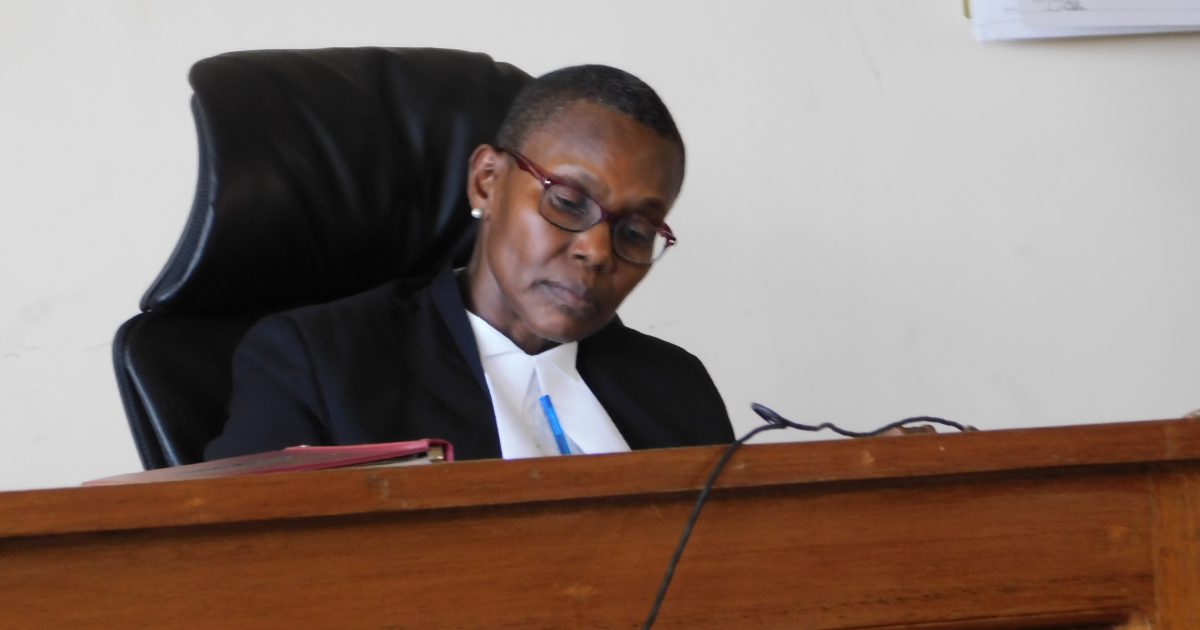Controversial preacher Paul Nthenge Mackenzie and his 29 co-accused persons suffered a major blow Friday when the High Court declared that they were properly charged with the murder of 191 children.
Lady Justice Mugure Thande however directed the Office of the Director of Public Prosecutions (ODPP) to reduce the number of counts from the initial 191 to twelve in order to facilitate quick delivery of justice to both the victims and the accused persons.
Justice Mugure, who delivered her ruling virtually, said the murder charge facing Mackenze and his co-accused persons was properly drafted and that the accused persons were charged in accordance with the law.
She struck out an application seeking to throw out the entire charge sheet on the grounds that it was defective as the counts did not specify the names of the victims and the specific dates and places where the offences allegedly took place.
Justice Mugure said the charge would not occasion any prejudice to the accused persons, noting that the same was read to the accused persons who pleaded not guilty, an indication that they had understood the contents therein.
The ruling followed a preliminary objection filed by defence counsel James Mouko, who complained that the counts were amorphous to the extent that they did not contain specific dates, places and the names of some of the victims.
However, Justice Mugure said the period stated does not in any case render the charge defective since the same was read to the accused person, who pleaded not guilty, and that the victims were identified through names and initials.
“Nothing has been placed before this court to demonstrate that the accused persons did not understand the charge,” she said adding, “The charge as drawn will not amount to any prejudice to the accused persons and thus the application fails.”
In directing the ODPP to amend the charge sheet, Lady Justice Mugure noted that the 191 counts were too many and that it would take too long to dispense with the case, a factor that would occasion prejudice to both the victims and the accused persons.
She recalled the amount of time it had taken to read the charge sheet to the 30 accused persons during plea taking, noting that it would take a very long time to dispense with the case unless the charge sheet is amended.
“One can imagine the time it will take for the evidence to be presented for each of the accused persons in respect of all the 191 counts,” Justice Mugure said. “This will obviously take a long time and will prejudice the rights of the accused persons to fair trial.”
Noting that the court was aware that the Office of the DPP was independent, Justice Mugure said however that that independence was not absolute and that the holder(s) of that office must take into consideration the interest of the public and administration of justice.
“Proceeding with the trial with the charge sheet as drawn is not in the interest of the public and administration of justice,” she said, adding that she concurred with the defence that the charge sheet was clearly overloaded.
She said although there is no legal provision setting the maximum number of counts, the number of counts in the charge sheet in question would occasion prejudice against the accused persons.
She referred to a Court of Appeal ruling of August 9, 1985 in a case between Peter Ochieng’ versus the Republic in which three appellate judges found that it was undesirable to charge an accused person with many counts in one charge sheet saying that alone would occasion prejudice.
“It is proper for a court to put the prosecution to its election at the inception of the trial as to the counts upon which it wishes to proceed. Usually, though not invariably, no more than twelve counts should be laid in one charge sheet,” Justice Mugure quoted the ruling as saying.
She noted another case in which the judges faulted the prosecution for putting 19 counts in one charge sheet, which they said put an immense burden on judges and jury.
“It is evident that there is consensus in the two cases that counts should not be many. I therefore direct the ODPP to, within 21 days, amend the charge sheet to contain not more than 12 counts,” she said.
She directed parties to the case to highlight submissions on the prosecution’s application to oppose bond on July 18, 2024.
All the accused persons, including Mackenzie, who is serving a one-year jail term over another offence, pleaded not guilty to the 191 counts of murder allegedly committed on unknown dates between 2021 and 2023 at Shakahola area in Malindi Sub County, Kilifi County.
The prosecution identified the murdered children by names and others by initials since they could not be properly identified by investigators. The gender of some of the victims was also not known due to the level of decomposition.
By Emmanuel Masha




